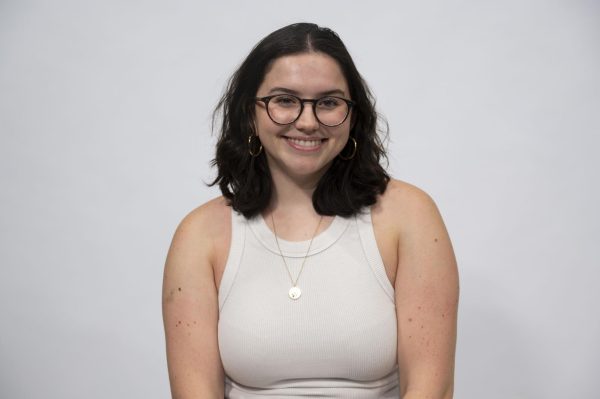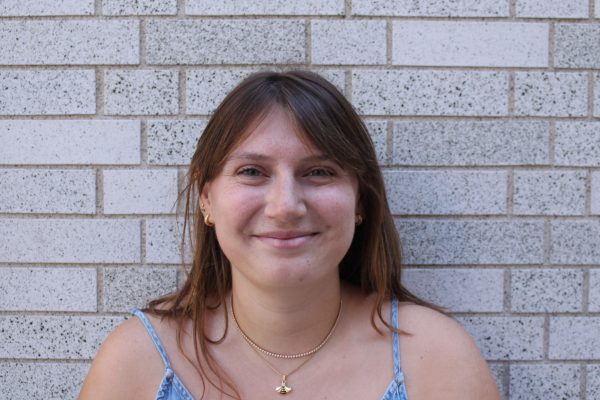Attrayee Chakraborty was unable to spend a summer in Boston in 2023, making participating in co-op, the signature six-month program of the university, inaccessible. So, she turned to Northeastern’s Experiential Network, or XN, program, a lesser-known opportunity for students to participate in experiential learning.
While Northeastern’s academic reputation centers around its renowned co-op program, there are other opportunities at the school to work with companies and ease students’ transition into the professional world. The XN program allows students to collaborate on a six-week virtual project with a sponsoring company that is completely embedded into Northeastern coursework.
According to the XN website, sponsoring companies can range from Tesla to Boston Children’s Hospital. Chuck Kilfoye, assistant teaching professor in the College of Professional Studies, or CPS, and founder of XN, began forming relationships with sponsoring companies when he started the program in 2015.
“It was started as [another option for] experiential opportunities, particularly for international learners in CPS,” Kilfoye said. “It started out as something we wanted to have in graduate programs to ensure that we fulfilled the promise of experiential learning for everyone.”
Chakraborty, a master’s student studying regulatory affairs, has done two XN projects in her area of study and is currently working on her third. In July 2023, she was able to do a co-op in regulatory affairs, which later led her to begin her third XN project with the same company.
Students work with the sponsoring companies and, at the end of the six weeks, present a “deliverable.” Projects are tailored to the student and their interests. In her two XN projects in regulatory affairs, Chakraborty worked with Massachusetts Eye and Ear and Analog Devices, where she tested medical devices for regulations and helped them launch the products into markets.
Chakraborty enjoyed her XN projects, she said, but preferred the co-op experience. However, she said her XN projects aided her in acquiring and succeeding in a co-op she wanted.
“Not just on my resume, but also the skills that I developed,” Chakraborty said. “It was kind of like mini internships, very short but fast-paced internships where I had to work with multiple teams.”
Despite their differences, both programs aim to fulfill Northeastern’s promise of experiential learning.
“[XN projects] are an accessible way of experiential learning,” said Laura Engel, director of the XN program. “It’s there as a resume booster, as a way to get that professional experience without having to do anything other than take your Northeastern classes.”
An XN project is also done independently by students, giving them the same professional and autonomous experience similar to that of co-op.
“It’s very self-motivated and you can do whatever you want with it,” Chakraborty said. “It’s very self-driven. So if you are excited to work on some project, you can talk about it with your sponsor and usually it works out.”
While XN provides rewarding experiences for students, the reason XN is not as widely promoted by the university as co-op is because of the way it is embedded into Northeastern coursework.
“A student can’t just come to our office and say, ‘I want to do an XN project,’” Engel said. “And that’s different from co-ops.”
The XN program works with faculty to embed XN projects into their coursework. “Faculty at Northeastern are experiential by nature, that’s why they came to teach [here],” Engel said.
In all, students participating in the XN program produce a total of around 500 projects per year.
From around 2015 to 2020, the majority of XN projects only existed within CPS. However, since 2020, the program has been embedded into coursework at all of the colleges at Northeastern.
While research and experiential learning projects have always been a part of Northeastern education, Engel said, Kilfoye aimed to make them more accessible.
“We made project-based learning easier at Northeastern,” Kilfoye said. “It became one of the largest project-based learning options out there.”
Despite a lack of promotion, Kilfoye said the program has turned into the second largest experiential pathway behind co-op and has allowed students to pursue experiential learning experiences when co-op is inaccessible to them.
“Co-op is the crown jewel, it’s the premiere experiential option at Northeastern,” Kilfoye said. “[But] co-op is not always right for everybody.”












